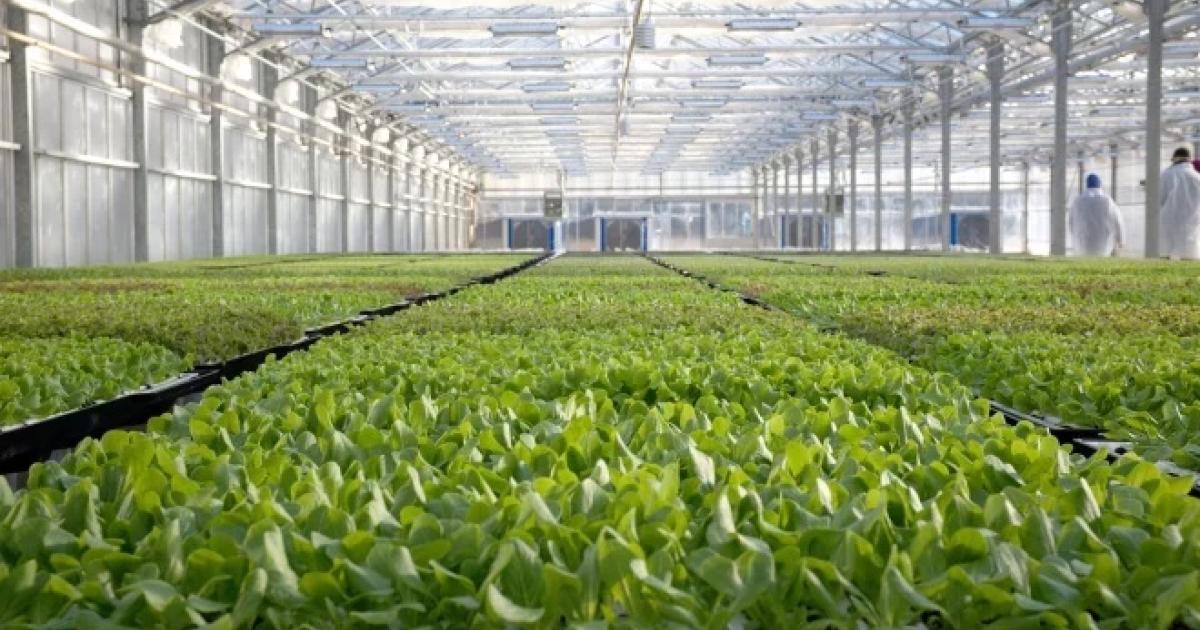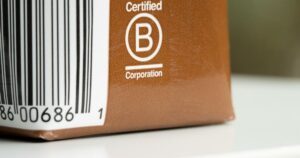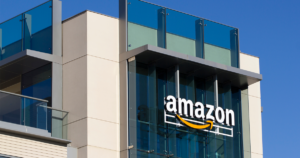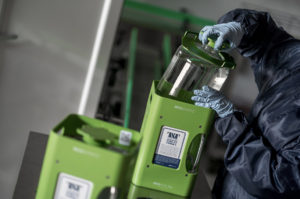
Tech giant Amazon has announced the success of its first foray into sustainable farming, confirming yesterday that it is now selling lettuces which are grown using 92 per cent less water and 55 per cent less fertiliser than conventional produce.
The lettuces are the fruits of Amazon's collaboration with climate-tech start-up Hippo Harvest, which the retailer invested in through its Climate Pledge Fund in 2021.
Hippo Harvest grows lettuces using robotics and greenhouses that are designed to slash water and fertiliser inputs, reduce food waste, and cut land use requirements. The approach is also designed to ensure greenhouses are located close to markets so as to further reduce transport emissions.
The new low impact lettuce is now available to Amazon Fresh online customers in select San Francisco markets.
Amazon said its investment in Hippo Harvest has helped the company to scale from a small start-up to a commercial sized operation, which can now meet growing demand from consumers for sustainable produce.
Hippo Harvest also recently signed The Climate Pledge, the Amazon backed initiative which calls on businesses to set targets to reach net zero emissions by 2040.
Kara Hurst, vice president of worldwide sustainability at Amazon, said urgent action was needed to help make agriculture more resilient to escalating climate impacts. "Climate change is already impacting how we eat," she said. "As water continues to disappear from our agricultural communities, we need solutions that give farmers the ability to make the best use of our natural resources and ensure everyone has access to fresh produce.
"Amazon's collaboration with Hippo Harvest is another step forward in our work to support transformative green technologies while also providing our customers with a broader array of grocery options."
Hippo Harvest uses a closed-loop, direct-to-root fertiliser system and machine learning to calculate the optimum amount of water, fertiliser, and light needed to produce high-yield crops.
The crops are also grown in a controlled greenhouse environment, meaning no pesticides are required with the company instead relying on natural alternatives such as peppermint oil and beneficial insects.
Moreover, Hippo Harvest's greenhouses can be located close to consumers - even in areas with little water or farmland.
Amazon suggested its new greenhouse - which is located in California - will serve as a test case for how local agricultural communities can adapt to the state's daunting combination of water stress and more intense rainstorms.
- SEO Powered Content & PR Distribution. Get Amplified Today.
- Platoblockchain. Web3 Metaverse Intelligence. Knowledge Amplified. Access Here.
- Source: https://www.greenbiz.com/article/amazon-freshens-sustainable-farming-first-low-impact-lettuce
- 2021
- a
- ability
- access
- Action
- adapt
- Agricultural
- agriculture
- already
- alternatives
- Amazon
- amount
- and
- announced
- Another
- approach
- areas
- Array
- available
- backed
- beneficial
- BEST
- broader
- businesses
- calculate
- california
- Calls
- case
- change
- Climate
- Climate change
- Close
- collaboration
- combination
- commercial
- Communities
- company
- Consumers
- continues
- controlled
- conventional
- crops
- Customers
- Cut
- Demand
- designed
- disappear
- eat
- Emissions
- ensure
- Environment
- Ether (ETH)
- Even
- everyone
- farmers
- farming
- First
- food
- Foray
- Forward
- Francisco
- fresh
- from
- Fruits
- fund
- further
- giant
- Give
- Green
- grocery
- Growing
- grown
- Grows
- harvest
- help
- helped
- How
- HTTPS
- Impact
- Impacts
- in
- Initiative
- instead
- invested
- investment
- IT
- Land
- learning
- light
- little
- local
- located
- Low
- machine
- machine learning
- make
- Markets
- meaning
- Meet
- more
- Natural
- Need
- needed
- net
- New
- Oil
- online
- operation
- optimum
- Options
- plato
- Plato Data Intelligence
- PlatoData
- president
- produce
- providing
- reach
- recently
- reduce
- required
- Requirements
- resilient
- Resources
- retailer
- robotics
- Said
- San
- San Francisco
- Scale
- Selling
- serve
- set
- signed
- small
- So
- Solutions
- Start-up
- State
- Step
- stress
- success
- such
- support
- Sustainability
- sustainable
- system
- targets
- Technologies
- test
- The
- The State
- Through
- to
- transformative
- transport
- urgent
- use
- Vice President
- Waste
- Water
- which
- while
- will
- Work
- worldwide
- zephyrnet
- zero








